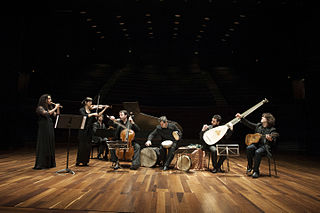
The Vienna Philharmonic, founded in 1842, is an orchestra considered to be one of the finest in the world.
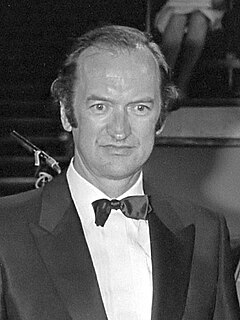
Nikolaus Harnoncourt was an Austrian conductor, particularly known for his historically informed performances of music from the Classical era and earlier. Starting out as a classical cellist, he founded his own period instrument ensemble, Concentus Musicus Wien, in the 1950s, and became a pioneer of the Early Music movement. Around 1970, Harnoncourt started to conduct opera and concert performances, soon leading renowned international symphony orchestras, and appearing at leading concert halls, operatic venues and festivals. His repertoire then widened to include composers of the 19th and 20th centuries. In 2001 and 2003, he conducted the Vienna New Year's Concert. Harnoncourt was also the author of several books, mostly on subjects of performance history and musical aesthetics.
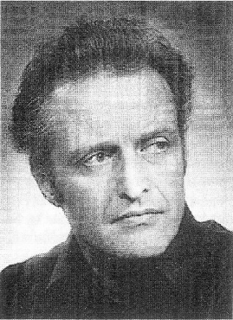
Carlos Kleiber was a German-born Austrian conductor who is widely regarded as being among the greatest conductors of the 20th century.
Cheryl Studer is an American dramatic soprano who has sung at many of the world's foremost opera houses. Studer has performed more than eighty roles ranging from the dramatic repertoire to roles more commonly associated with lyric sopranos and coloratura sopranos, and, in her late stage, mezzo-sopranos. She is particularly known for her interpretations of the works of Richard Strauss and Richard Wagner.
Rudolf Kolisch was a Viennese violinist and leader of string quartets, including the Kolisch Quartet and the Pro Arte Quartet.
Sebastian Fuchsberger is an Austrian musician. He is a trombonist, tenor and yodeller, and a founding member of the Austrian jazz-folk band Global Kryner.
Hanspeter Kyburz is a contemporary Swiss composer of classical music, known for applying electronic music techniques to his productions.
Ernst Ottensamer was an Austrian classical clarinetist.
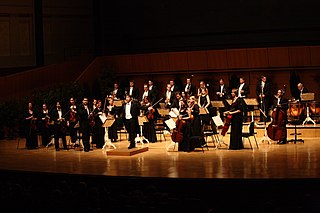
The Vienna Mozart Orchestra, with its 30 musicians, was founded in 1986 and has devoted itself entirely to that great composer of the Viennese classical period, Wolfgang Amadeus Mozart. Since its foundation 20 years ago, the orchestra has found a permanent place in Viennese concert life, becoming a fixture in the City of Vienna’s musical programmes for tourist entertainment every summer.
Wenzel Fuchs is an Austrian clarinetist.
Kurt Equiluz is an Austrian classical tenor in opera and concert, known for recording works of Johann Sebastian Bach with Nikolaus Harnoncourt and Helmuth Rilling, a member of the Vienna State Opera as a tenor buffo from 1957 until 1983.
The "Wiener Klangstil" is the particular way in which Viennese and – to an extent – Austrian orchestras interpret orchestral and chamber works, preferring a performance style and tonal qualities markedly different from international practice. This term to describe the characteristics of the Viennese style of playing was first defined by Gregor Widholm in 2006 in the Österreichisches Musiklexikon, vol. 5.

Matthias Bertsch is a German-born Austrian musicologist, musician and professor at the University of Music and Performing Arts in Vienna. He is the actual President of the Austrian Society for Music and Medicine.
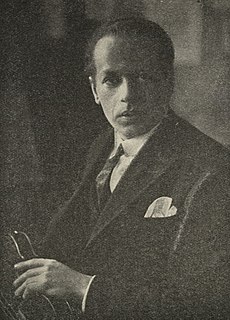
Hugo Gottesmann was an Austrian violinist, violist, conductor, and chamber musician and a highly decorated soldier in World War I. His career in Vienna as a conductor and violinist was cut short when Hitler took office in Germany in 1933. He was fired from his positions at Radio Wien, the Vienna Symphony, and the Academie für Musik and forced to seek work elsewhere in Europe and emmigrate to the United States.
Gerd Nienstedt was a German and Austrian opera singer, bass and bass-baritone. After an international career at major opera houses and the Bayreuth Festival, he was also a theatre director, stage director and academic voice teacher.

Oskar Czerwenka was an Austrian operatic bass and academic teacher. He was a member of the Vienna State Opera from 1951 to 1986, performing 75 roles, including his signature role Ochs auf Lerchenau and premieres of new operas. He was also an author, visual artist and illustrator, and performed in concert. He received several awards, and the state music school in his home town was named after him.

Elisabeth Kulman is an Austrian classical singer who has performed operatic roles in soprano, mezzo-soprano and contralto repertory. She has appeared at opera houses in Vienna and internationally. She has performed early operas such as Legrenzi's Il Giustino as well as new works, creating the role of Gora in the premiere of Reimann's Medea at the Vienna State Opera. She recorded Lieder by Mussorgsky, Bach's Christmas Oratorio with Peter Schreier and Beethoven's Missa solemnis with Nikolaus Harnoncourt. From 2015, she has focused on concert singing.

Pavel Singer is an Austrian composer, pianist and arrangeur.

Schlosstheater Schönbrunn is a stage at Schönbrunn Palace in Vienna which opened in 1747. The Baroque theatre now serves for the training of students of acting and opera, and for performances of the Musik Theater Schönbrunn.






